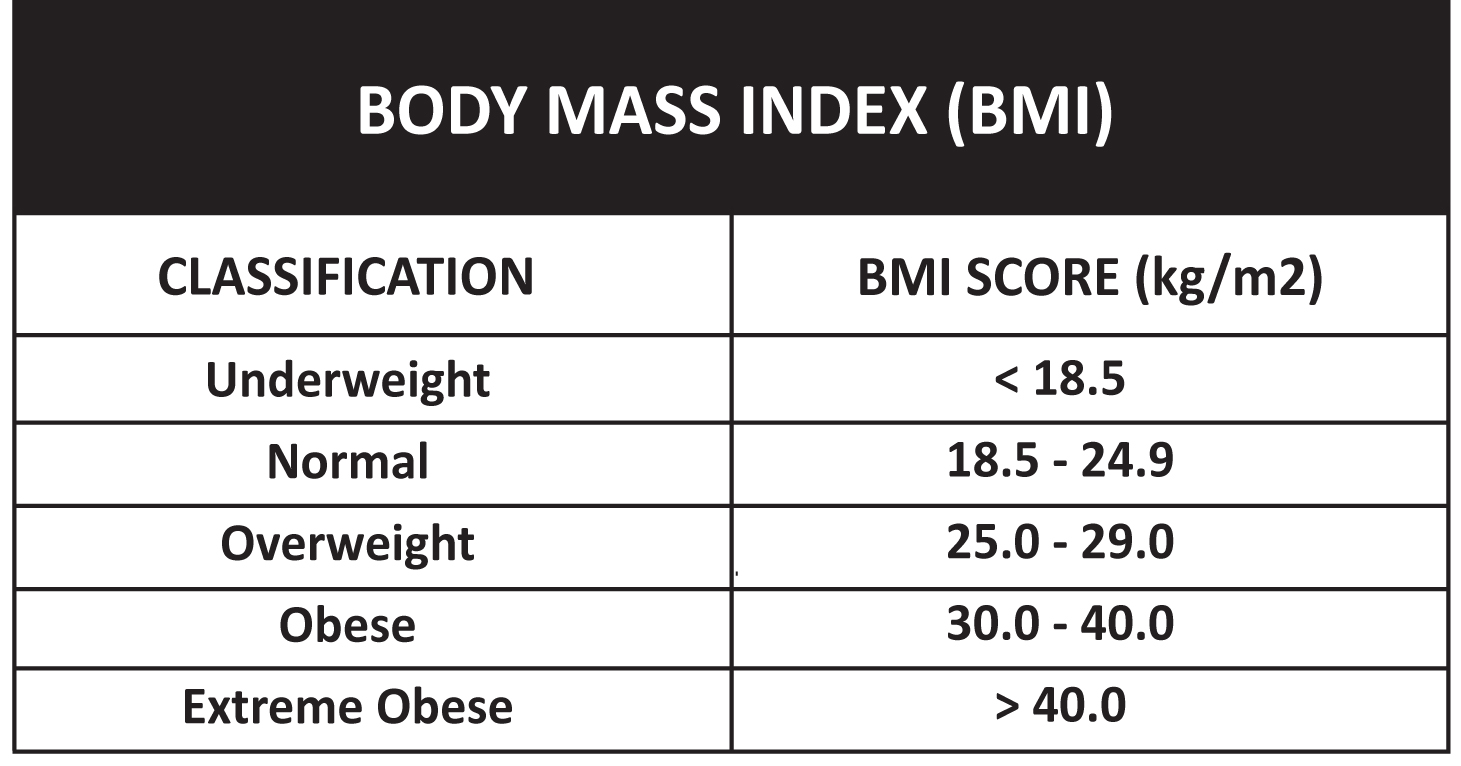Obesity is the state where an individual's body stores the excess amount of fat. A person can be overweight as per the bodily built and other factors related to it, like, bone mass, water retention in the body, etc. However, obesity is when the person finds it hard to do easy physical activities like walking, bathing, running, and others. Obesity disorder can be caused due to many reasons and can further lead to many severe conditions as well, like heart-related problems.
Obesity Disorder
BMI:
Having a bloated belly or being a little overweight is not obesity. Obesity is a serious concern and must be dealt with sensitivity. Obesity is diagnosed when the BMI, body mass index, is 30 or more. If this holds true for an individual, consulting a doctor is a must.
[caption id="" align="alignnone" width="523"]
 source
source[/caption]
Waist Circumference:
As per a report, men should have a waist size less than 40 inches, and women should have it below 34 inches. Fat in the abdomen leads to various health problems. The potbelly or apple body shape carries more fat. Thus, individuals with the same must be alarmed about the situation.
Causes: How Does it Happen?
There are many reasons behind the condition. Involvement of psychological, behavioural, and hormonal factors is there. However, the end reason comes out to be calorie intake. The situation in which the calorie intake of the person is more than the calories burnt, obesity comes out like a disease. These extra calories are stored as fat in the body.
Even the minimal body movements count when it comes to burning calories — for example, movements like, walking and moving around to do regular daily activities. Unhealthy diet and eating disorders are the main reasons behind excessive weight gain. Unhealthy diet includes fast food, carbonated beverages, oily snacks, etc.
Moreover, psychological, genetic, and environmental problems also lead an individual to consume more calories, resulting in obesity.
Factors Affecting:
Environmental factors: Environmental factors such as availability of food and the overall intake of the food type defines the risk of obesity to a great extent. People in different countries have different food availabilities. Hence, they have different body types.
Psychological factors: Psychological factors influence eating habits depending on the individual's response to different mood types. For instance, some people eat a lot while going through emotions like boredom, anger, depression, and sadness, etc.
Genetics: Obesity runs in families. However, that can be controlled if taken care at early ages. The lifestyle of running in the family contributes to obesity at a higher level. Thus, the type of diet and food consumption in a family can affect the weight and body type of the individuals in the family.
Medical Conditions Related to Obesity
There are many medical conditions related to obesity. Some of them are:
- Heart diseases & strokes
- High blood pressure
- Cancer
- Diabetes
- Osteoarthritis
- Gallbladder disease and gallstones
- Gout
- Asthma
- Sleep apnea (where a person stops breathing in sleep for short interval)
Prevention: How Can it be Stopped?
Being overweight or standing on the verge of being obese does not imply that an individual needs not to worry about the weight. These slow steps can push the person into the category-defining obesity. Thus, there must be some healthy inclusions to the lifestyle to reduce the risks of unfavourable conditions, caused by obesity disorder.
How To Stop?
Monitoring:
It is crucial to keep a check on the weight. Because this works as an alarm and indicates how it is the time to manage some weight. One can start by shedding down some fat and consuming fewer calories.
Notice the Situation:
Individuals trying to keep an eye on weight and striving to lose some pounds must track down the scenarios where they eat a lot. Such instances can be emotional or physical scenarios, must be avoided in the long run to manage weight effectively in the desired manner.
Follow a Healthy Diet Plan:
Every individual must follow a healthy lifestyle and a diet plan. One must avoid foods combined with ingredients rich in saturated fat and artificial sweeteners to lower the fat and calorie intake. Also, one must ensure to take care of the medical conditions before following any sort of diet and take advice from the doctor.
Exercise Regularly:
Exercising is a must to lose or maintain weight. Hence, one must follow a usual routine of exercise to avoid the risk of falling into the category of obesity.
Munch of Fruits & Veggies:
One must aim for at least five handfuls of fruits and vegetables per day. Eventually, this helps to provide fibre to the body and helps to keep the stomach full for long.
Do not skip meals:
Skipping meals can just complicate the metabolism and will make the person feel hungry. Eventually, the person will eat more than the serving required at that time.
Add Small Snacks:
Feel free to include planned, healthy snacks between meals. Because this ensures that all the cravings stay clear and the individual is not eating something unhealthy.
Limit restaurant foods:
Knowing about all the ingredients is difficult when someone is dining out. As a result, this may lead to eating what one must avoid. However, avoiding the same can help eat fewer calories and preservatives in the diet.
Eat All Types:
One must try different food types to ensure the intake of all kinds of nutrients in the meal.
Bibliography
https://my.clevelandclinic.org/health/diseases/11209-weight-control-and-obesity-faq
https://www.maxhealthcare.in/our-specialities/dietetics/conditions-treatments/obesity
https://my.clevelandclinic.org/health/diseases/17630-weight-management--obesity
http://www.rediff.com/getahead/2005/jun/15health.htm
https://www.mayoclinic.org/diseases-conditions/obesity/symptoms-causes/syc-20375742

 Jun 03, 2019
Jun 03, 2019
 source[/caption]
source[/caption]
 May 30, 2018
May 30, 2018 May 10, 2018
May 10, 2018 May 17, 2018
May 17, 2018